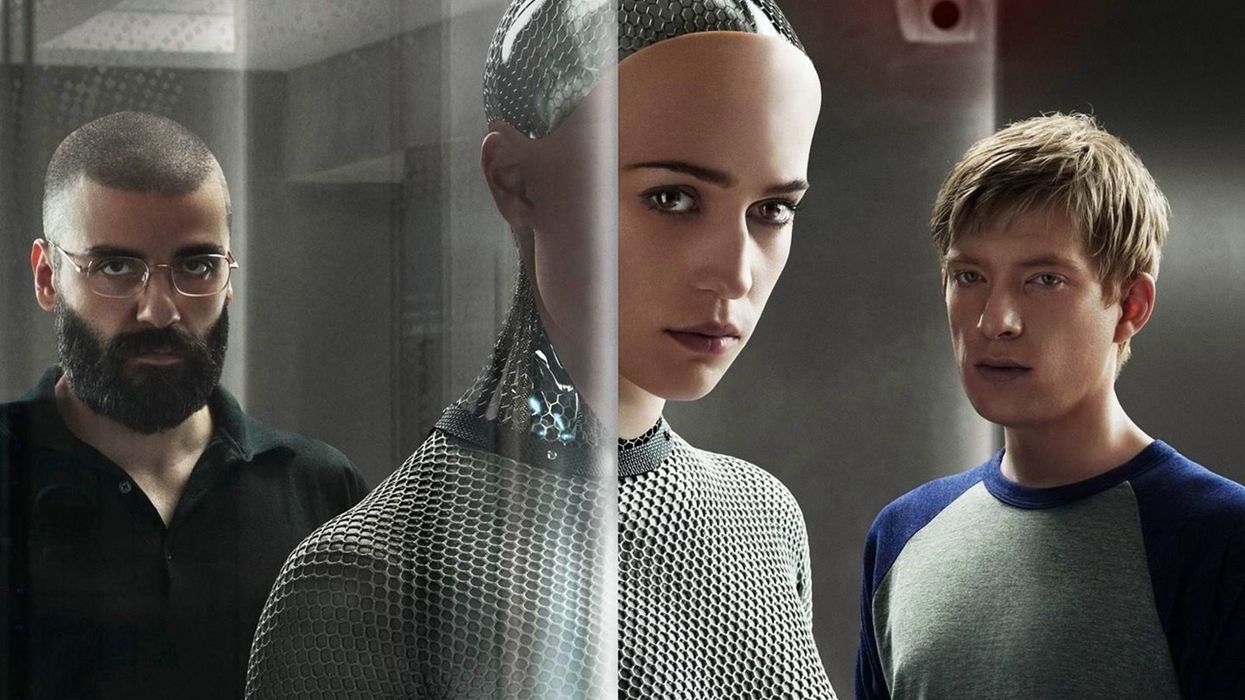Watch: 'Ex Machina' Shows How to Use Your Character as a Vessel for Story
This video essay shows how POV, control of information, and revelation are inextricably linked in a narrative.

{Editor's Note: This article contains spoilers for both Fight Club and Ex Machina.}
As Michael Tucker notes in the beginning of his video essay on Alex Garland's Ex Machina, "at its most basic level, a story is just information being communicated over time."
This may seem obvious, but one of the most salient questions for a screenwriter or filmmaker, beyond what information to reveal, is how is to reveal that information (and through whose point of view?).
Compared to other art forms, film is relentlessly temporal and can direct (or misdirect, as the case may be) the perspective of the viewer. Just like in literature, a film is told "through" the eyes of a character.
In a film/novel like Fight Club, the story is told from a limited, first-person perspective, in which, as Tucker puts it, "the audience experiences the film along with the character." Writers have long taken advantage of this gap in information—that is, what the audience perceives as the story's reality, versus what is actually happening—in the form of the unreliable narrator. (In the case of Fight Club, the big reveal is exactly that.)
Ex Machina is the story of a young man (Caleb) who is summoned to the island of a mysterious billionaire (Nathan), where he meets Nathan's "creation," a disconcertingly humanlike AI named Ava. This is the setup for the conflict that follows.
So, what is the POV in Ex Machina? Initially, it would seem to be Caleb's story, as "for the most part, we experience the story along with him," according to the video essay. But by the end of the film, Tucker argues, it's revealed that Ava is the actual protagonist; Caleb is, essentially, a dupe, both for Nathan, and, more important, for Ava, in furtherance of her overriding goal, freedom. Because Ava wants something and has the most at stake, she is the natural protagonist.
Much in the same way that The Great Gatsby is the story of Gatsby told through Nick, Ex Machina is "Ava's story told through Caleb." And the essay argues that this is the only way the film could work. Had the film been told from Ava's perspective, "it wouldn't be very dynamic," as "Ava spends most of the story locked in her room, interacting almost exclusively with Caleb." She simply "doesn't encounter enough new information to be engaging."
In the same way that The Great Gatsby is the story of Gatsby told through Nick, Ex Machina is Ava's story told through Caleb.
Then there's Nathan, the tycoon who has lured Caleb to his abode. He would also be an unsuitable point-of-view character, because, well, he "spends most of the story getting drunk and waiting for Caleb to be predictably manipulated." Therefore, it's only Caleb, lured to the island by Nathan, and with the agency to move around and discover the story's information, who "is in a unique position to go from knowing nothing to knowing everything, and it’s this journey of discovery that keeps the audience engaged."
This choice, like every choice in a film, is deliberate, and in this case is arguably the most effective way of telling the story; in Ex Machina, choosing to tell the story through Caleb offers the most compelling experience. A careful examination of your story and its key points of revelation will give you "a window into the audience’s experience, which can help ensure the film will be engaging"—and in the end, that's all anyone, whether audience or filmmaker, could ask for.
Source: Lessons from the Screenplay











